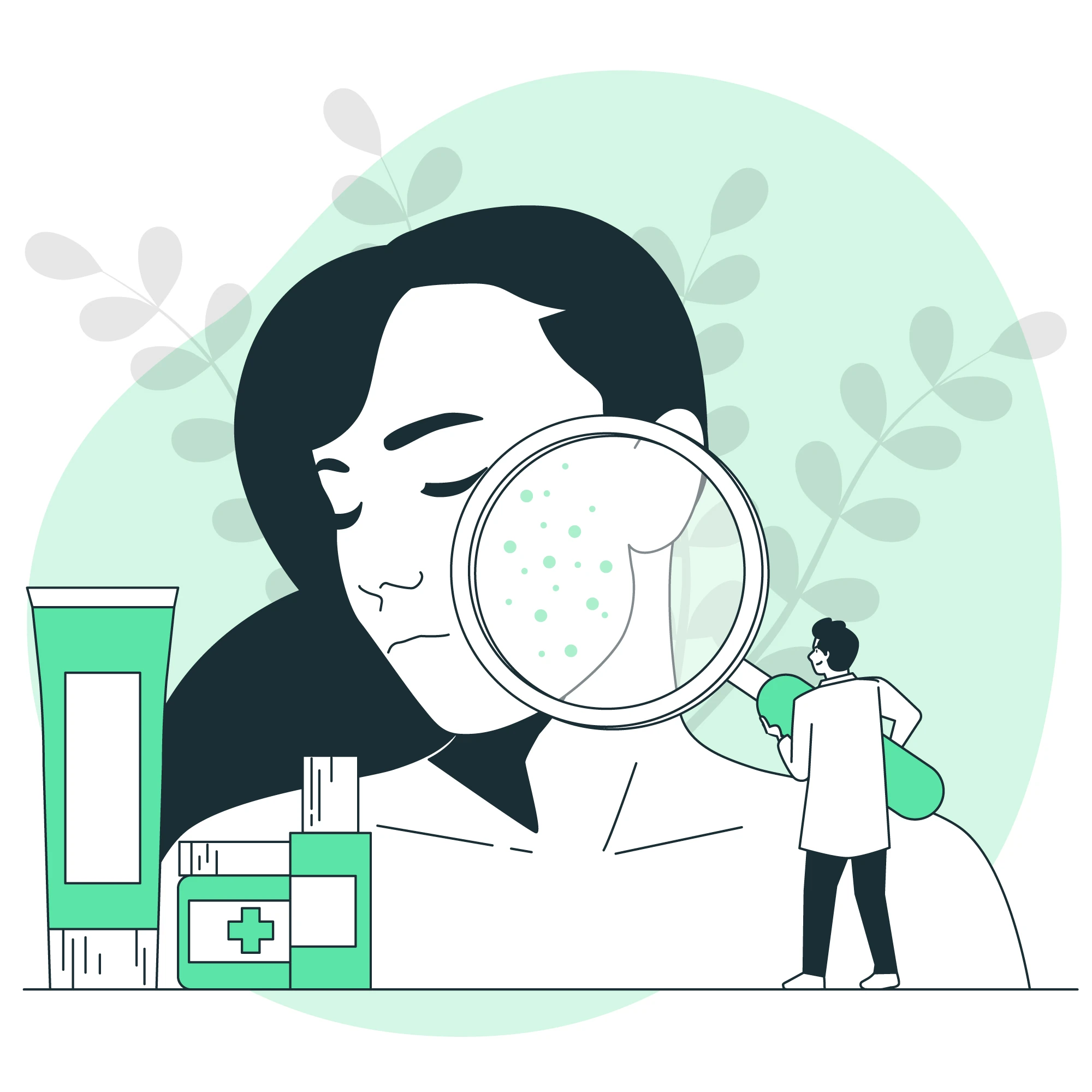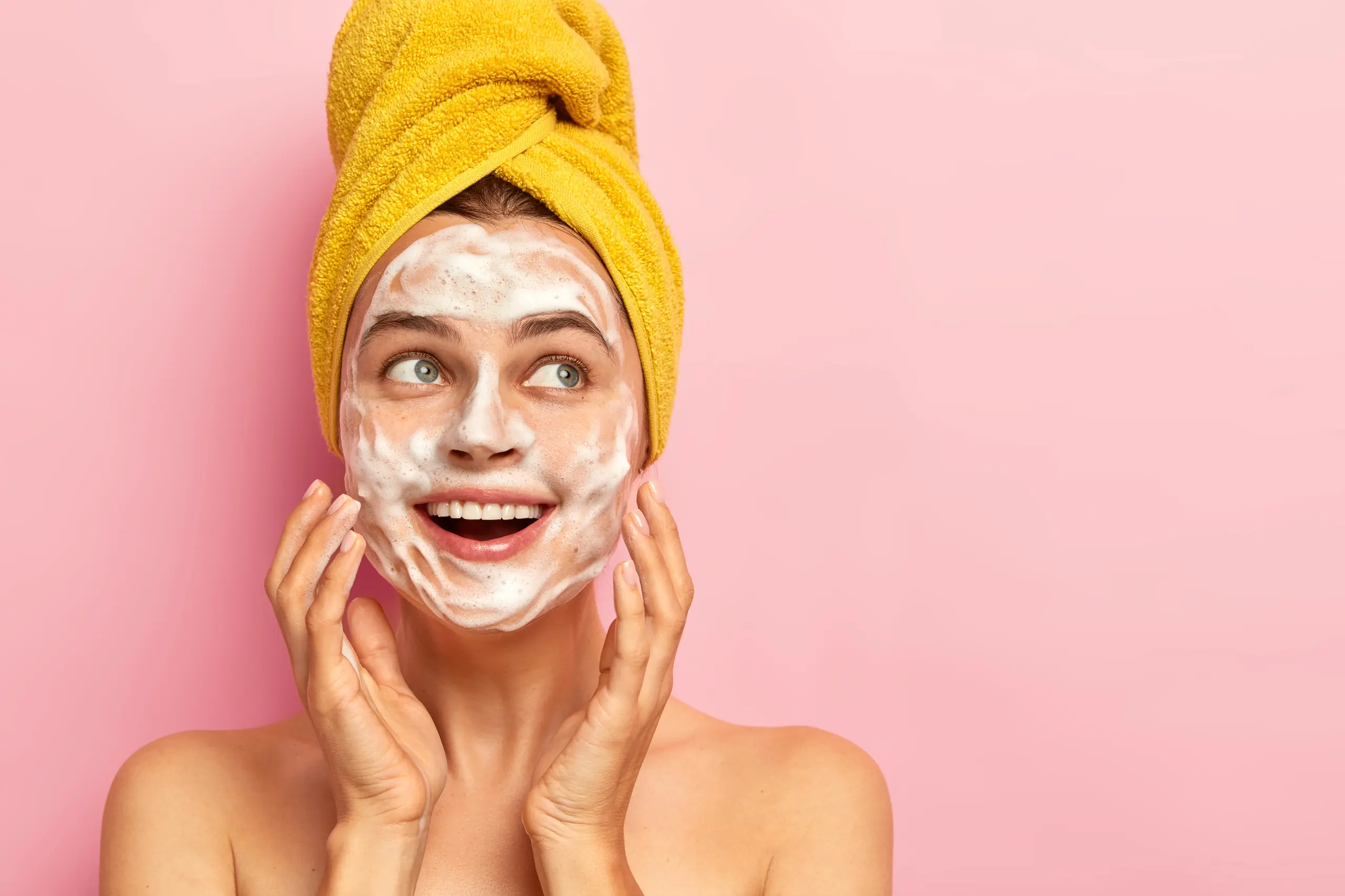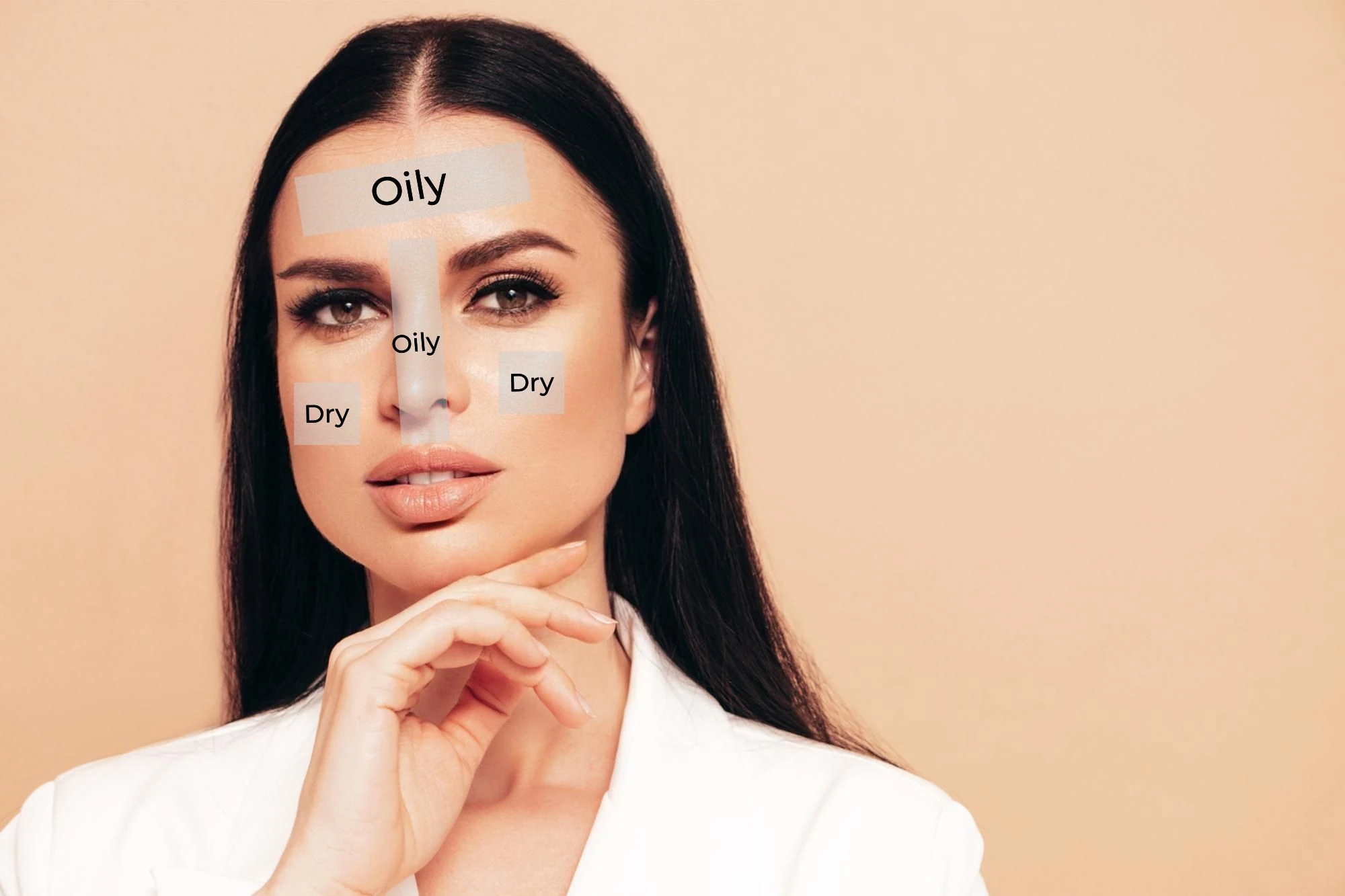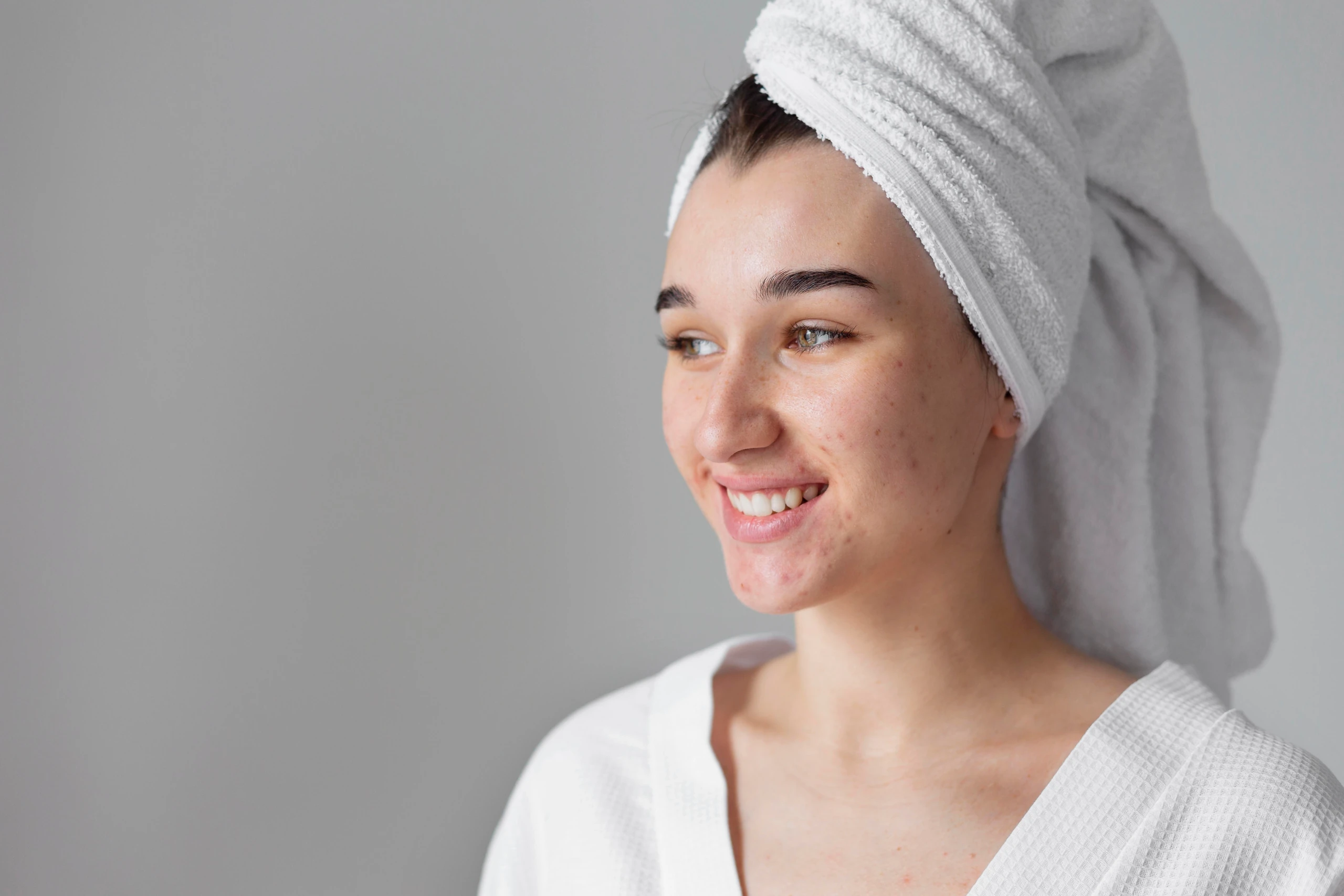What are pores!
Pores are a complex structure of our skin and are generally defined as microscopic openings. These tiny holes are present on the surface of our skin and serve a series of important functions. Pores enable the skin to breathe, secrete natural oils, and create a barrier against various external factors.
The Structure of Pores
Pores constitute a complex structure of our skin, often considered as microscopic openings not visible to the naked eye. Despite being thought of as tiny, these openings play a critical role in the health and functions of the skin. The structure of pores can be understood through a detailed examination of these crucial microscopic structures situated between the upper layers of the skin, known as the epidermis, and the dermis.
The Fundamentals of Pore Structure
Each pore can be defined as an opening located between the outermost layer of the skin, known as the epidermis, and the deeper layer called the dermis. The epidermis is the outermost layer of the skin and contains the majority of the pores. These openings allow the skin to breathe, perspire, and release its natural oils.
Each pore is surrounded by an oil gland or sebaceous gland. This gland produces a substance called sebum. Sebum has the task of maintaining the skin’s moisture balance, keeping the skin supple, and preventing water loss. The oil glands release sebum to the surface of the skin through a canal that reaches from inside the pores.
The Importance of Pores and Their Role in Our Skin
Pores are, in a way, the hidden heroes of our skin, a kind of microscopic miracles. These small openings are located on the surface of the skin and actually play a variety of crucial roles. Pores contribute to functions ranging from allowing the skin to breathe to maintaining the natural oil balance and forming a barrier against environmental factors.
- Breathing and Sweating
- Oil Production and Moisture Balance
- Heat Regulation
- Skin Protection
1 – Breathing and Sweating
Pores allow the skin to breathe by facilitating contact with oxygen. Each pore is located within the epidermis, which makes up the upper layers of the skin. This allows for the exchange of oxygen within the skin. Oxygen reaching the cells contributes to the regular functioning of metabolism.
The breathing mechanism supports the skin in staying young and vibrant. Oxygen reaching the cells helps in the renewal of the skin and the repair of damaged cells. Additionally, the penetration of oxygen into the skin contributes to a fresh and healthy appearance.
Pores also contribute to the sweating process, regulating body temperature. Sweating is a way to control body temperature. The sweat produced by sweat glands reaches the skin through pores. When this sweat reaches the surface of the skin, it evaporates, lowering body temperature.
Sweating also aids in the elimination of toxins. The sweat expelled through pores contributes to the removal of harmful substances from the body. This detoxification process supports skin health and overall well-being.
The healthy breathing and sweating of pores should be supported by regular skincare. Cleansing, toning, and moisturizing help keep pores open and functional. Additionally, attention to factors such as using the right products and sun protection is crucial for maintaining the vitality of pores.
The processes of breathing and sweating of pores are crucial mechanisms that regulate overall skin health and body functions. These processes contribute to keeping the skin fresh and youthful, regulating body temperature, and assisting in the elimination of toxins. Regular skincare and healthy lifestyle habits are essential for maintaining the vitality of pores and ensuring the optimal performance of your skin.
2 – Oil Production and Moisture Balance
The health of our skin is built upon the delicate balance between oil production and moisture. Proper oil production is crucial for skin protection and maintaining moisture balance. In this article, we will explore the effects of oil production and moisture balance on our skin in detail, aiming to understand the importance of preserving this balance.
Oil production is a fundamental process for maintaining the health of the skin. Sebaceous glands beneath our skin produce an oil called sebum. This oil has important functions such as preserving the skin’s moisture, preventing water loss, and keeping the skin supple. Additionally, it contributes to the overall protection of the skin.
However, as important as oil production is, maintaining this balance is critical. Excessive oil production can lead to pore blockage, acne formation, and other skin issues. Therefore, balancing oil production is a significant step for skin health.
Moisture balance in the skin refers to maintaining the optimal level of water content. Moisture is critical not only for preserving the skin’s elasticity and youthfulness but also for sustaining the skin’s natural barrier. Proper moisture levels help the skin resist harmful external factors.
Moisture can be influenced by various factors such as weather conditions, age, genetic factors, and the use of skincare products. Therefore, using moisturizers suitable for your skin type and regular moisturizing are important to maintain skin vitality.
The interaction between oil production and moisture balance is of critical importance for healthy skin. Proper oil production helps maintain the moisture balance of the skin. However, this balance varies for each skin type. Individuals with oily skin should take care to control oil production, while those with dry skin should pay more attention to moisturizing.
A balanced oil production and moisture balance ensure the skin stays young and healthy. Additionally, preserving this balance can help prevent various skin problems and enhance the skin’s resilience.
Tips to Support Oil Production and Moisture Balance
- Selection of Products According to Skin Type: Using cleansers, toners, and moisturizers suitable for your skin type can help optimize oil production and moisture balance.
- Balanced Nutrition: Consuming foods containing healthy fats can support skin health. Omega-3 fatty acids are particularly beneficial in this regard.
- Water Intake: Drinking enough water maintains the skin’s moisture balance. It is important to strive for at least 8 glasses of water a day.
- Correct Skincare Routine: Establishing a skincare routine that includes regular cleansing, toning, and moisturizing can help the skin maintain balance.
- Sun Protection: Using sunscreen products is essential to protect the skin’s balance.
Supporting oil production and moisture balance are key elements in the beauty formula for the skin. Preserving this balance is one of the crucial steps for achieving healthy, youthful, and vibrant skin.
3 – Heat Regulation
An important function of pores is their role in regulating body temperature. Pores, working in conjunction with sweating, help control body temperature. This process occurs through the secretion of liquid by sweat glands, which reaches the skin surface and evaporates.
Sweat carries away heat from the body to lower body temperature. The cooling effect that occurs during the evaporation of sweat helps maintain the body temperature at an optimal level. Pores allow sweat to reach the skin surface, providing an effective way to regulate body temperature.
This heat regulation system is particularly crucial in situations such as hot weather, exercise, or stress. The sweating process facilitated by pores ensures the control of body temperature, preventing overheating.
The healthy functioning of pores is vital for effective heat regulation. Clean pores allow sweat to be released freely, aiding in the balanced maintenance of body temperature. However, enlarged or clogged pores can reduce the effectiveness of this process.
Regular skincare can support the health of pores and effective heat regulation. Cleansing, toning, and moisturizing routines can help keep pores open and clean.
Heat regulation emphasizes the significant role of pores in our skin. Regular care and healthy lifestyle habits can contribute to maintaining the structure of pores and keeping body temperature at an optimal level. This, in turn, supports overall skin health and helps the skin perform its functions optimally.
4 – Skin Protection
Pores form a defense mechanism for the skin against external factors. By limiting the entry of harmful substances such as bacteria, viruses, dust, and other environmental pollutants, pores help maintain the health of the skin. This protective mechanism enhances the skin’s resilience and establishes a barrier against various infections.
Pores and Bacterial Barrier
Pores create a natural barrier on the skin, preventing bacteria from penetrating. Especially in modern living conditions where environmental factors and pollutants are prevalent, this serves as a fundamental defense mechanism for the skin.
Protection Against Harmful Effects of the Sun
Pores also undertake the role of protecting the skin from the harmful UV rays of the sun. UV rays can damage skin cells, leading to premature aging, blemishes, and skin cancer. Sebum within the pores can reduce these harmful effects by forming a natural sunscreen layer on the skin.
Role of Sweat and Pores
Sweat production is another crucial function of pores. Sweat reaches the skin surface through pores and evaporates. This not only regulates body temperature but also cleanses the skin. Natural antimicrobial substances in sweat protect the skin against bacteria, supporting overall skin health.
Skin Protection and Pore Care
Regular skincare is essential to maintain the skin’s protective function and keep pores healthy. Cleansing, toning, moisturizing, and using sunscreen contribute to the healthy functioning of pores and the preservation of the skin’s protective barrier. Additionally, regular dermatological check-ups and appropriate product selection are important for preserving skin health.
In conclusion, the structure of pores forms an important mechanism that protects our skin against external factors. Therefore, regular skincare and healthy lifestyle habits can help pores fulfill this protective function to the best of their ability.
Pore Enlargement and Causes
Pore enlargement is a concern related to skin health and is perceived by many as an issue affecting the appearance of the skin. So, why do pores enlarge, and what can be done to prevent this condition? Here is a detailed look at pore enlargement and its causes.
What is Pore Enlargement?
Pores are the exit points of the sebaceous glands that secrete the natural oils of our skin. These oils are important for maintaining the skin’s moisture balance and keeping it youthful. However, pores can enlarge due to various factors.
Causes of Enlargement
- Genetic Factors: Some individuals may genetically have larger pores. Your family history can influence the size of your pores.
- Hormonal Changes: Hormonal fluctuations, especially during adolescence or pregnancy, can lead to the enlargement of pores.
- Increased Oil Production: Excessive oil production by the skin can clog pores and cause them to enlarge.
- Sun Damage: Prolonged exposure to the sun can reduce the elasticity of the skin and contribute to pore enlargement.
- Smoking: Smoking can reduce the oxygen intake of the skin and lead to pore enlargement.
Preventing and Treating Pore Enlargement
To prevent and treat pore enlargement, you can follow these steps:
- Regular Cleansing: Regularly cleansing your skin can prevent the accumulation of oil and dirt.
- Moisturizing: Moisturizing the skin can help maintain its elasticity.
- Sun Protection: Using sunscreen can reduce sun damage and protect pores.
- Nourishing Diet: A healthy diet can improve overall skin health and reduce pore enlargement.
- Professional Care: Professional skincare methods such as chemical peels can be effective in reducing pore enlargement.
Pore enlargement is a skin issue that can result from various factors. However, with regular skincare and healthy lifestyle habits, you can manage this problem and help your skin achieve a healthy appearance. If you have concerns about pore enlargement, seeking professional advice from a dermatologist is also important.



